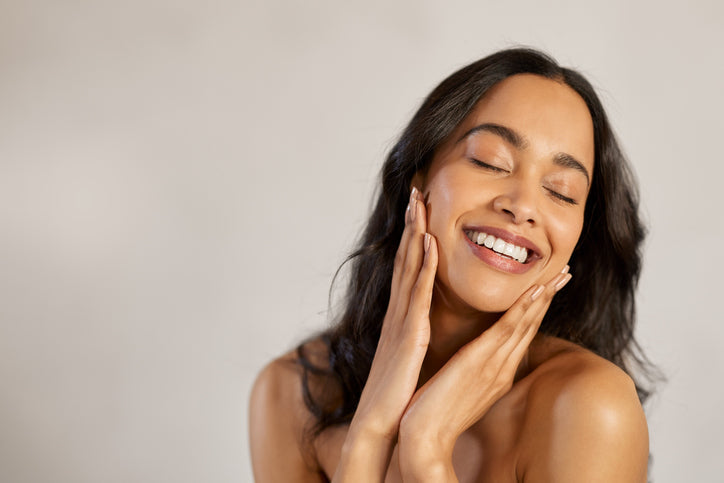
Benefits of biotin for hair, skin & nails
Share
Biotin is an essential, water-soluble nutrient necessary for human metabolism. Biotin acts as a cofactor for different enzymes in the body that are essential for the metabolism of dietary fats, proteins and sugars.
Dietary biotin
Where can you get biotin from in your diet? Biotin is widely distributed in a variety of foods, however its concentration varies significantly. Foods with the highest amounts include organ meats, fish and meat, while vegetables and grains contain considerably lower amounts. The good news is that biotin from foods is well-absorbed, with up to 100% bioavailability[1].
What about eggs?
Heard rumours about eggs reducing biotin absorption? Don’t worry, you don’t have to give up your eggs for this vitamin. While it is true that raw eggs contain a protein, avidin, which binds to dietary biotin and prevents its absorption, cooking eggs denatures the avidin, making it unable to interfere with biotin absorption. Cooked eggs won’t interfere with your biotin intake, and indeed they contain biotin, providing approximately 10 micrograms per whole cooked egg. Win-win!
Hair, skin & nails
A person’s hair, skin and nails are on display at all times and are often a reflection of their internal vitality. Healthy hair, glowing skin and strong nails share a common foundation: keratin. Keratin is a protein that is a structural component of your hair, skin and nails. Keratin reinforces cells, providing strength and structure, and acts as a barrier, protecting against damage.
Biotin for hair, skin and nails
Biotin is well-known for its role in supporting the health of hair, skin and nails and exerts its effect via its role on keratin. Due to biotins role in protein metabolism, it is important for keratin production.
Biotin supports skin health and hair health, as it is necessary for hair follicle formation and growth. A review by the European Food Safety Authority (EFSA) concluded that there is a cause-and-effect relationship between the dietary intake of biotin and the maintenance of normal hair[2].
Brittle nails are not uncommon, and are characterised by roughness of the surface of the nail plate and fragility of the nail. There are three small, uncontrolled studies that show benefits of biotin supplementation on nail health. In these studies, 2.5mg of biotin daily supported nail firmness and nail strength[3,4,5]. It is good to note that long-term supplementation is needed for nail health, with most studies showing results after 5 or 6 months of supplementation. This makes sense given that fingernails are generally renewed in adults every 6 months, although this can be slower in the elderly.
So if you’re looking to support your hair, skin or nails, you could consider a multi-nutritional formula containing biotin, such as Herbs of Gold Silica Hair Skin & Nails, or opt for a standalone biotin with Herbs of Gold Biotin 3mg.
Always read the label an follow the directions for use.
[1] Perry, C. A., & Butterick, T. A. (2024). Biotin. Advances in Nutrition, 100251.
[2] EFSA Panel on Dietetic Products, Nutrition and Allergies (NDA). (2009). Scientific Opinion on the substantiation of health claims related to biotin and energy-yielding metabolism…. EFSA Journal, 7(10), 1209.
[3] Colombo, V. E., Gerber, F., Bronhofer, M., & Floersheim, G. L. (1990). Treatment of brittle fingernails and onychoschizia with biotin: scanning electron microscopy. Journal of the American Academy of Dermatology, 23(6), 1127-1132.
[4] Floersheim, G. L. (1989). Treatment of brittle fingernails with biotin. Zeitschrift fur Hautkrankheiten, 64(1), 41-48.
[5] Hochman, L. G., Scher, R. K., & Meyerson, M. S. (1993). Brittle nails: response to daily biotin supplementation. Cutis, 51(4), 303-305.
